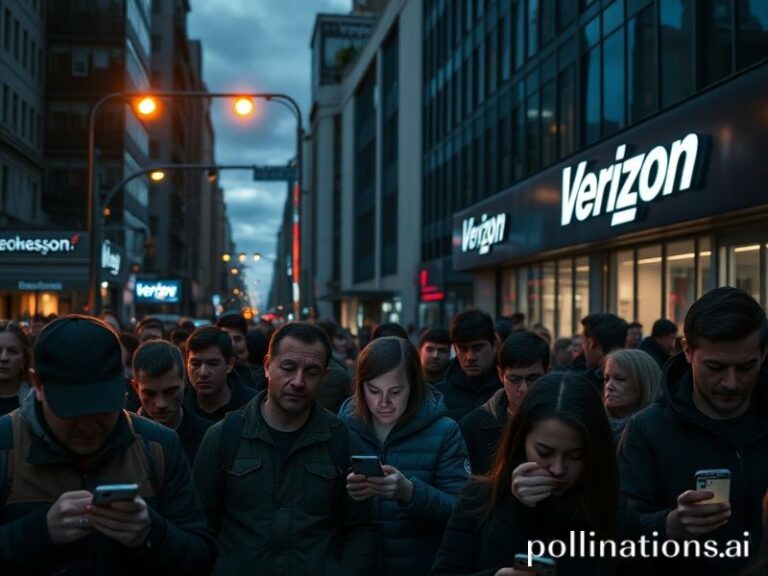Netanyahu’s Sixth Act: How One Man Keeps the World Watching—and Waiting
The Man Who Refuses to Leave the Stage: Netanyahu’s Global Encore
By Our Correspondent, still jet-lagged and morally fatigued
Tel-Aviv—Look closely at any modern map and you’ll notice a curious phenomenon: borders shift, currencies collapse, even the climate renegotiates its terms, yet one constant remains—Benjamin Netanyahu, squinting into the klieg lights like a cat that has discovered how to open the refrigerator. The latest season of “Bibi: The Eternal Return” dropped this spring when Israel’s parliament, in a plot twist worthy of a telenovela, voted the 74-year-old back into office for a sixth, non-consecutive term. The world exhaled the weary sigh of a commuter watching the same delayed train pull in yet again.
Globally, reactions split neatly between those who keep a suitcase packed and those whose livelihoods depend on pretending not to notice. In Washington, President Biden offered the usual diplomatic boilerplate—“ironclad partnership,” “shared values,” and other phrases that poll-test well in the Virginia suburbs—while privately calculating how many more times he can schedule a “routine” phone call without appearing to audit Israel’s democracy. The EU, ever the committee that cannot decide on lunch, issued three separate statements, each more delicately balanced than the last, like a ballerina tiptoeing across a minefield. Arab capitals practiced the ancient art of the shrug; after all, they’ve watched Netanyahu outlast their own monarchs, presidents, and at least one emir who reportedly died of sheer astonishment.
What makes Netanyahu globally fascinating, in the same way a slow-motion multi-vehicle collision is fascinating, is his uncanny knack for turning domestic melodrama into geopolitical cliffhanger. His current coalition—an unholy casserole of ultra-Orthodox parties and ultra-nationalist settlers—has proposed judicial reforms so aggressive that even the Israeli Supreme Court, usually as shy as a Vegas wedding chapel, is contemplating a veto. Should those reforms pass, Israel’s credit rating, its tech sector, and its relationship with American Jewry could all relocate to friendlier zip codes. Silicon Valley titans who once fawned over Tel-Aviv’s start-ups now practice something resembling risk diversification, a fancy term for “panic quietly.”
But the stakes spill far beyond the Eastern Mediterranean. Netanyahu’s encore arrives just as the region’s power grid is being rewired. Saudi Arabia flirts with Beijing, Iran enriches uranium to ever-more-therapeutic levels, and Turkey’s Erdogan—another gentleman allergic to retirement—offers to mediate anything with a pulse. In this context, Netanyahu functions as the Rorschach test great powers use on one another: Washington sees an indispensable ally; Moscow sees a useful headache; Beijing sees a cautionary tale about what happens when you jail your own elites and still insist on calling it the “Start-Up Nation.”
Meanwhile, the Palestinians—remember them?—have upgraded from footnote to subplot. Netanyahu’s coalition partners demand settlement expansion at a pace that would make 19th-century American railroad barons blush. The UN issues condemnations with the regularity of a Swiss train schedule, thereby achieving the diplomatic equivalent of screaming into a pillow. European leaders, anxious to keep both gas contracts and moral credentials, have perfected the art of the furrowed brow. And ordinary Israelis queue at foreign consulates, renewing second passports the way other people renew gym memberships they’ll probably never use.
The dark punchline, of course, is that none of this seems to dent Netanyahu’s electoral Teflon. Israelis, like voters everywhere, appear to prefer the devil they know binge-watching Netflix to the angel they don’t. In a world addicted to reboots, Netanyahu is the ultimate franchise: familiar characters, predictable plot twists, and just enough suspense to keep the ratings alive.
So what does the international audience take away from this latest episode? Perhaps that in the 21st century, longevity has become its own form of soft power. Or that democracy, when marinated in enough fear and fatigue, can re-elect its own undertaker. Or simply that some men are destined to leave office horizontally, preferably on a gurney with a flag draped over it—because the alternative, stepping aside gracefully, would require a script revision no one in the writer’s room seems willing to make.
Fade to black. Roll credits. Wonder who’ll still be here for the sequel.







